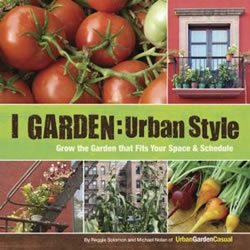Posted on 09 March 2013 by urbangardencasual.com
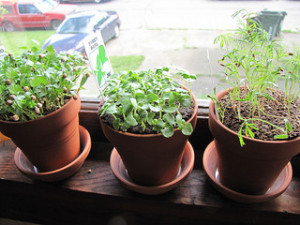
Photo Credit: My windowsill herb garden by Lilnemo used under CC BY-NC-SA 2.0
By Mindy McIntosh-Shetter
Oh how I love my herbs.
I have made a morning ritual of getting up and enjoying a cup of herbal tea in my herb garden.
The morning smells awaken me without the negative effects of stimulants and is a great way of setting the tone for the day.
But as the growing season comes to a close, my smelling fix is quickly coming to a close.
What to do, what to do about this fixation I have with herbs.
I have tried many techniques to keep my herbs available to me. I have dried them. While the flavors are comparable to fresh in the culinary realm, they do not compare to fresh when it comes to my own aromatherapy.
I have frozen them with olive oil but the same situation applies as above. Read the rest of this entry »
Posted on 07 March 2013 by urbangardencasual.com
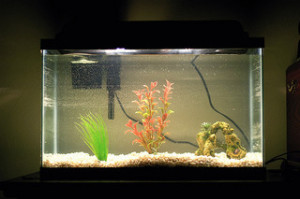
Photo Credit: Bonny Kellswater by This Year’s Love used under CC BY-NC-ND 2.0
By Mindy McIntosh-Shetter
The other day, I was walking down the road and saw several aquariums sitting in the trash.
All three had some slight imperfections that prevented them from holding fish.
While their primary purpose was ruined, they still had a lot of usefulness left.
So I rescued these little glass boxes and took them home.
As I walked home, I wondered what I was going to do with three slightly imperfect aquariums.
Once I got these aquariums home, I discovered that they had many uses in the urban garden. Below is a list of the ways I repurposed these aquariums.
1. Aquarium Cloche. I love to get my garden in as soon as possible but Read the rest of this entry »
Posted on 05 March 2013 by urbangardencasual.com
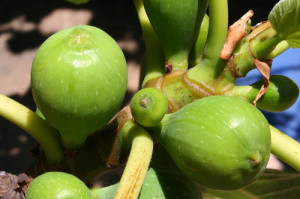
Photo Credit: Fig Season by Mayhem Chaos used under CC BY-NC-SA 2.0
By Mindy McIntosh-Shetter
Oh, how I dream of a Mediterranean vacation.
While I cannot mimic an ocean breeze or the sound of waves crashing against the beach, I can grow some of the favorites that I would be dining on if I were on that dream vacation.
One of my favorites are figs but I can only get fresh figs during the holidays. To address my need for fresh figs, I grow my own.
Figs are relatively easy to grow especially if you live in a warm climate but do not despair if you live in a cold climate. Dwarf varieties exist that can be grown in containers.
Figs are started Read the rest of this entry »
Posted on 03 March 2013 by urbangardencasual.com
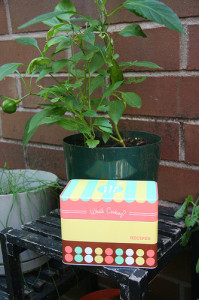
Photo Credit: Recipe box Lauren used under CC BY-NC-ND 2.0
By Mindy McIntosh-Shetter
Nowadays with the invention of computers, the need for a recipe box has become obsolete.
But what is one to do with that old box?
The answer is simple and begins with the three Rs.
Below are three ways one can recycle the recipe box in a frugal gardener fashion.
1. Reuse. The organizational fashion of a recipe box can be used to organize ones saved or purchased seeds. The recipe division cards can be labeled by seed type or by season, which ever way works best for you. When labeling the seeds make sure to mark the date they were purchased or saved. Once this is done, place the recipe box in a cool location that is sun-free.
2. Recycle. Organizing ones garden chores by month is another way one can be an organized gardener. While this can be done on a calendar, a recipe box can hold a lot more detail. Simply divide the box by the month and write a to-do list that will go into each division. Read the rest of this entry »
Posted on 01 March 2013 by urbangardencasual.com

Photo Credit: Cat in the garden by Alex Balan used under CC BY-NC-SA 2.0
By Mindy McIntosh-Shetter
Pests can come in many different forms and can appear at different times of the season.
Some pests are easy to control or eliminate from that part of the garden while others can be more challenging.
The key to organically controlling a pest is a three-fold process.
The first stage is prevention, which is followed by knowing one’s pest and finally coming up with a management plan.
Prevention is an important stage when it comes to pest control. This can range from planting plants that are not susceptible to certain pest, such as nematodes and removing plant material from the garden space at the end of the season.
The next stage is Read the rest of this entry »





